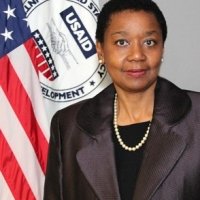The Middle East Workforce and COVID-19: Resetting the Regional Economic Formula
On International Workers Day, the MENA-WDI team is convening an expert panel to discuss the findings of the Wilson Center’s report “Ready for Work: An Analysis of Workforce Asymmetries in the Middle East and North Africa.” The discussion will also analyze the impact of COVID-19 on the labor market. The region already faced significant economic fragility prior to the pandemic, but the coming recession will hurt the Middle East especially hard. Declines in foreign direct investment, similar to the trend during the recession of 2008-2009, will further weaken the private sector, driving unemployment higher and shutting women out of the workforce where female labor participation rates are already one of the lowest in the world. The disruptions to energy markets will also be felt in the region as energy exporters withdraw to protect their domestic markets and labor exporters are cut off from an important source of jobs and remittances. The current crisis makes the findings and recommendations of our report even more relevant: that urgent reforms are needed in education, skills training, and the business environment to generate meaningful employment and growth for the future.
Please Note: This event is online only through our website. You may view the livestream on this webpage. Please direct any questions to the Middle East Program email
Introduction

Keynote Speaker

Moderator

Panelists




Hosted By

Middle East Program
The Wilson Center’s Middle East Program serves as a crucial resource for the policymaking community and beyond, providing analyses and research that helps inform US foreign policymaking, stimulates public debate, and expands knowledge about issues in the wider Middle East and North Africa (MENA) region. Read more


The MENA Workforce Development Initiative
The Middle East and North Africa Workforce Development Initiative (MENA-WDI) aims to assess both current and projected challenges facing the region in developing the workforce and the implications for peace and stability. Read more
